News
European Juice-Makers Offer Vegetable Innovation
5 Jun 2012The Mintel Inspire trend A Simple Balance for Health maintains that “simple, uncomplicated habits are always a good option. Sticking with the basics is a surefire way for brands to score with health-seeking consumers.” In the juice segment, vegetable blends are one example of a back-to-basics approach. They balance out the need for both fruit and vegetables, […]

The Mintel Inspire trend A Simple Balance for Health maintains that “simple, uncomplicated habits are always a good option. Sticking with the basics is a surefire way for brands to score with health-seeking consumers.”
In the juice segment, vegetable blends are one example of a back-to-basics approach. They balance out the need for both fruit and vegetables, and as consumers a growing number of countries face obesity issues, vegetables’ lower sugar and calorie levels offer an option for keeping those factors in check.
In Europe, vegetable juice introductions are back on the rise after dropping considerably for several years. Juices that use vegetable as a flavor component (which excludes products that contain vegetable juice and extracts only for natural color) fell by more than half between 2007 and 2010. But they began climbing again last year, and this year have already seen nearly as many introductions as all of last year.
Spain, Italy, Belgium and the Czech Republic all have increased their share of Europe’s vegetable juice introductions during the past two years. Germany has retained its position at the top of the list, although its share of overall introductions in the region dropped slightly.
Consumers in Europe report that they are trying to live healthier. In fact, more than half (55%) of consumers in France and a nearly two-thirds of those in Italy say they are always striving for a healthier lifestyle. Those percentages are slightly lower for Germany and Spain (42% and 46%, respectively), but still significant. That seems to offer a chance for juice to promote vegetable content as well as fruit for a wider range of nutrients.
While a number of the new European vegetable juice rollouts are veg-only, fruit and vegetable blends continue to become more popular. So far this year, fruit, citrus fruit and berry blends have accounted for 63% of introductions.
Carrot is the go-to vegetable for blends, accounting for 46% of the products introduced in Europe so far this year. That’s followed by tomato, which can be found in 26% of introductions in 2012. Beetroot accounts 9% of introductions so far this year, building on the vegetable’s growing reputation for lowering blood pressure, increasing stamina and athletic performance, and fighting inflammation.
Like consumers in most regions, European consumers report that they find it difficult to get the recommended five servings of fruits and vegetables a day. Interestingly, at 61%, consumers in Germany are among the most likely to say they struggle to meet their five-a-day. That means despite the number of vegetable-based juices on the market, consumers are not seeing them as part of their consumption goals. Juice-makers seem to be missing the opportunity to tie their vegetable juice products to these goals.part of their consumption goals.
Consumers across Europe report swapping out less-healthful snacks for fruits and vegetables, but some still prefer their veg to be blended in with something else rather than consumed straight up. Not surprisingly, younger consumers are most likely to say they prefer vegetables blended into smoothies or soup. In Italy, 29% of those under age 25 prefer consume vegetables this way, as do 28% of under-25s in Spain and 21% in Germany. That leaves potential for juice-makers that can appeal to these younger consumers by blending the vegetables they know they should be eating into a more preferred format.
As consumers become more comfortable and familiar with vegetable-based juices, drink-makers can look to the East for new concepts. Japan and China are the two leading vegetable juice innovators globally, with Japan accounting for 13% of global introductions so far this year and China 9%.
Related news

UK to ban junk food TV advertisements before 9pm
3 Oct 2024
In a bid to reduce childhood obesity, the UK government has introduced a policy, coming into effect on 1 October 2025, banning junk food advertising on television before the 9pm watershed.
Read more
Which food and beverage brands made TIME’s Most Influential Companies list?
2 Oct 2024
Chickpea pasta, prebiotic sodas, food boxes, non-alcoholic beer, and a soil carbon marketplace are the specialties of the five food and beverage brands that earned a spot on TIME’s 2024 list.
Read more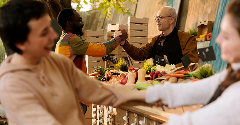
New environmental food scoring standards emerge
30 Sep 2024
EIT Food and Foundation Earth collaborate to launch environmental food scoring for products entering the global supply chain.
Read more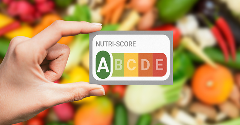
Danone removes NutriScore from products
20 Sep 2024
Following an algorithm update that gives some of its sweetened drinks a worse score, Danone has removed the front-of-pack label, NutriScore, from all of its products – putting profit before public health, say campaigners.
Read more
Nestlé develops a new fat reduction method for dairy ingredients
26 Aug 2024
A Brazil-based Nestlé research and development team has developed a way to reduce the fat in milk powder by as much as 60%, without impacting the key characteristics that consumers enjoy.
Read more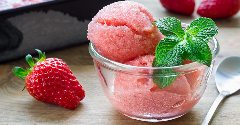
Better Juice expands its range to sorbets
16 Aug 2024
Food tech startup Better Juice has developed a technology to reduce the sugar content in fruit sorbets. The process retains the natural vitamins, minerals, and flavours of fruit, while offering manufacturers an easy-to-implement and scalable solution t...
Read more
German study reveals high sugar, fat, and salt levels in children's foods
13 Aug 2024
The food industry is making slow progress in reducing the high levels of sugar, fat, and salt in German food and beverage products marketed to children, according to the Max Rubner Institute (MRI).
Read more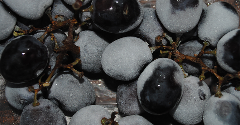
Swedish court overturns prohibition on winery’s use of imported frozen grapes
12 Aug 2024
Swedish company Drood Winery has successfully challenged the Swedish Food Agency’s decision to prohibit the production and sale of their product made from frozen grapes imported from Iran.
Read more
Paris Olympics: Food and beverage brands champion health, fun, and sustainability
5 Aug 2024
Food and beverage brands are aligning with the Paris Olympics 2024 Food Vision, which emphasises sustainability, local sourcing, and plant-based diets.
Read more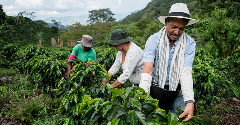
The coffee supply chain is failing farmers, says Solidaridad
30 Jul 2024
The coffee industry’s economic model means its profits do not reach farmers, despite there being enough value to be shared all along the supply chain, according to a new report by Solidaridad Network and IDH.
Read more